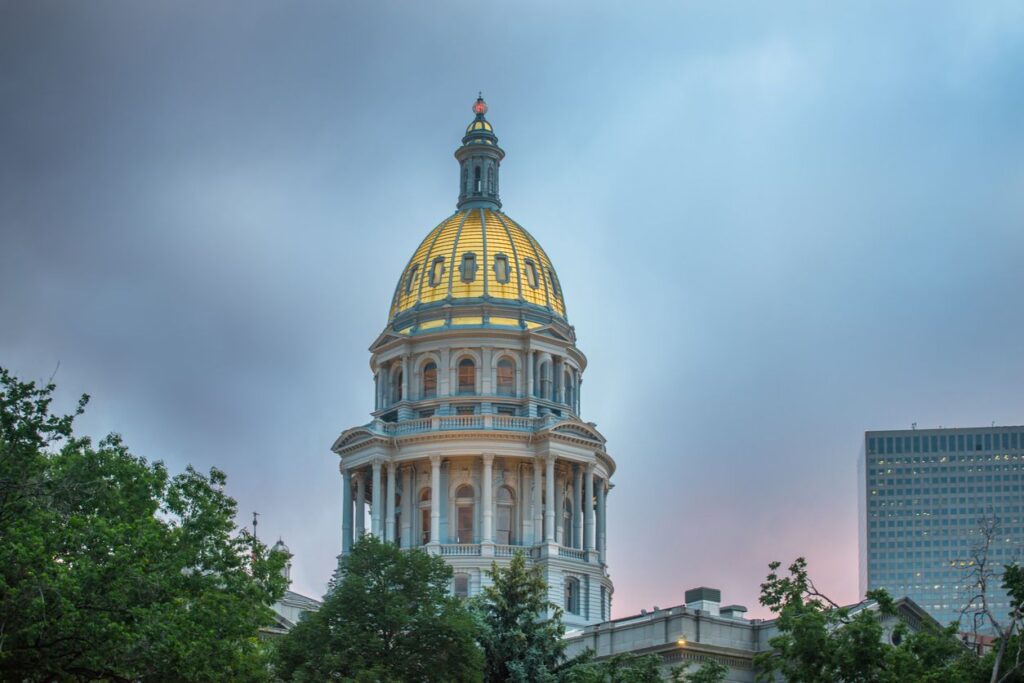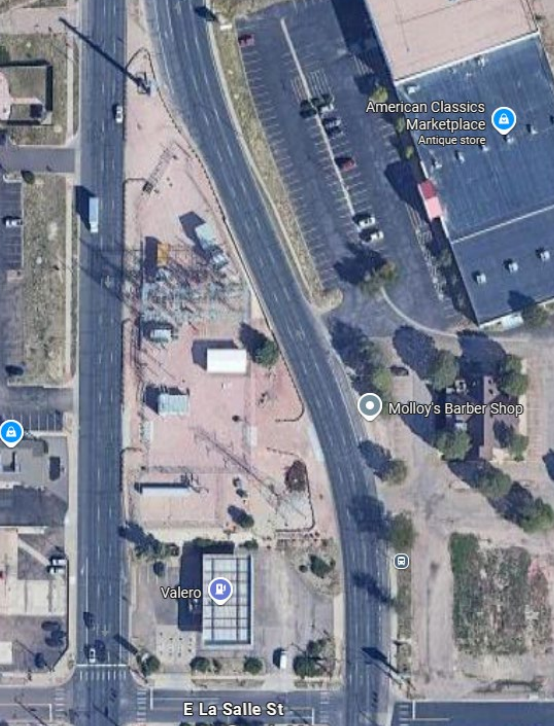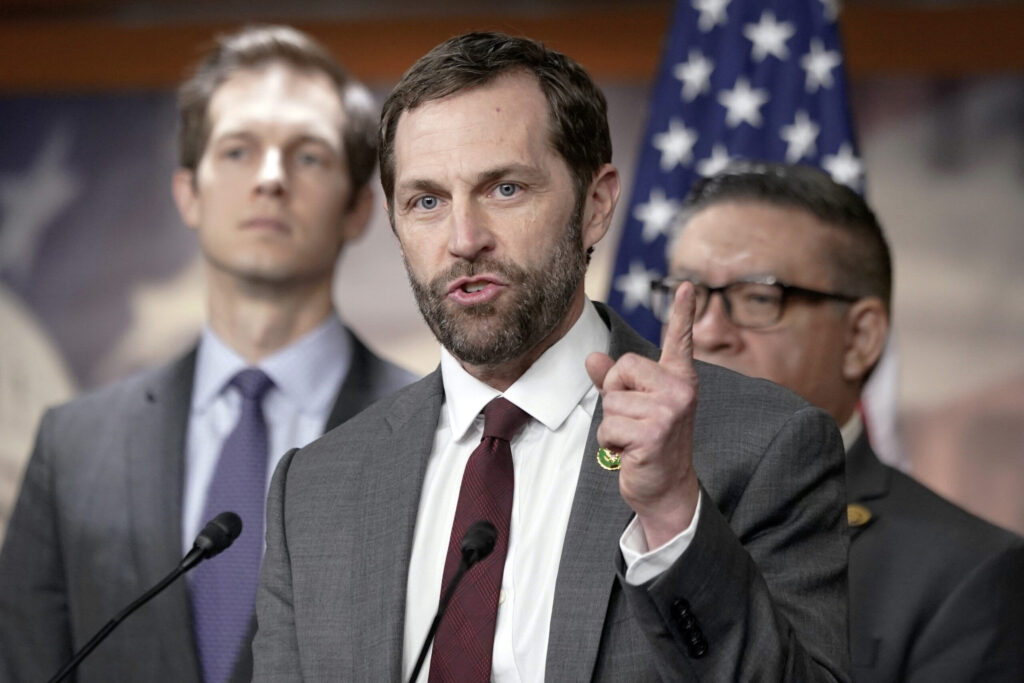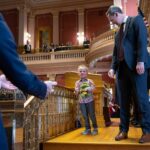Pro-Palestinian protesters disrupt Colorado House on first day of session
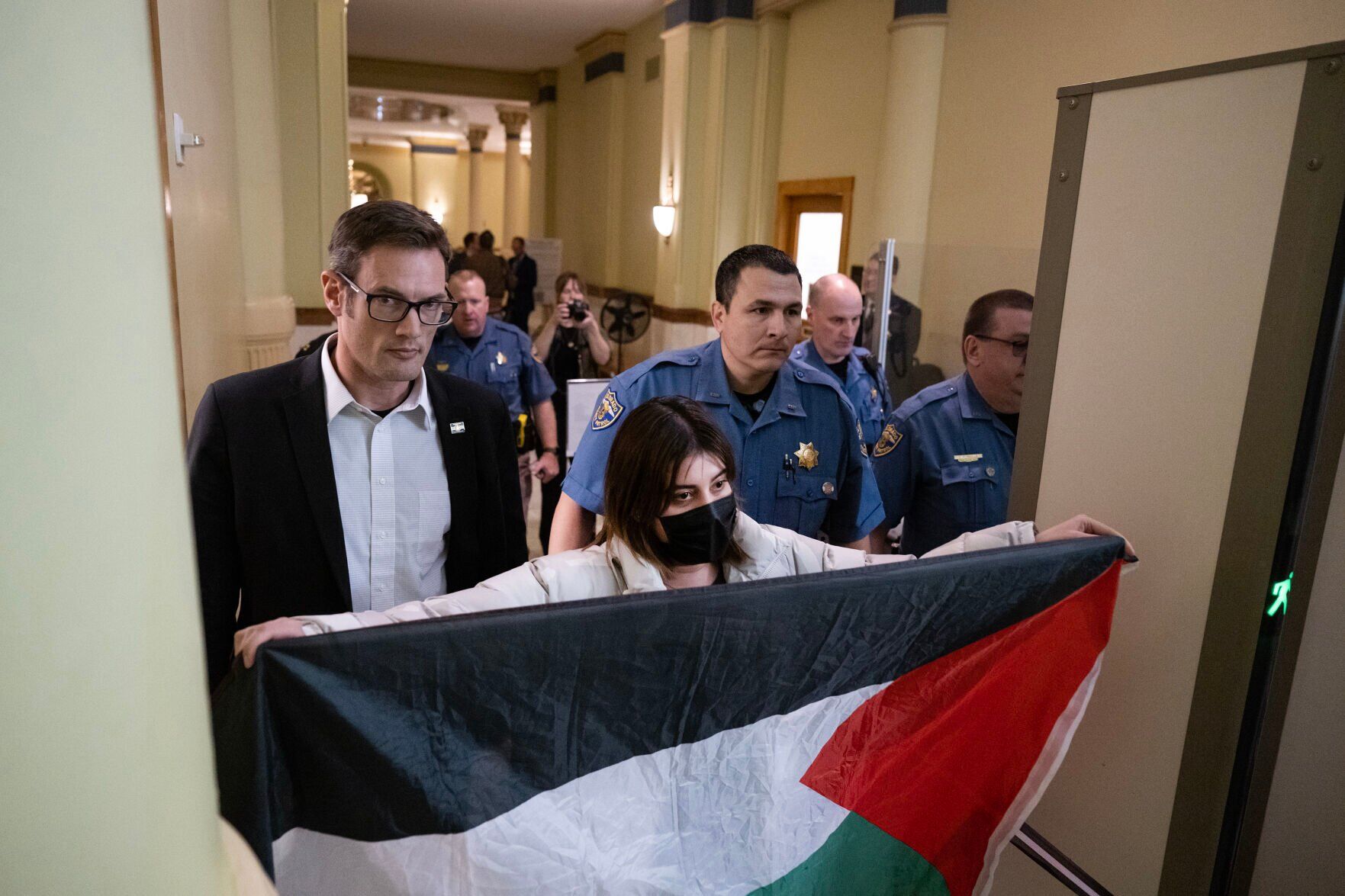
The Colorado General Assembly immediately got off to a troubled start on Wednesday, when multiple groups of pro-Palestinian protesters shouted from the House gallery, bringing the chamber’s business to a brief halt.
Similar protests took place in state legislatures in California and Arizona on their opening days earlier this week.
Pro-Palestinian protesters disrupt opening day of the Colorado House’s 2024 sessionMarianne Goodland
marianne.goodland@coloradopolitics.comMarianneGoodland, Colorado Politics
marianne.goodland@coloradopolitics.com
https://www.coloradopolitics.com/content/tncms/avatars/e/f4/1f4/ef41f4f8-e85e-11e8-80e7-d3245243371d.444a4dcb020417f72fef69ff9eb8cf03.png
The disruption prompted Sen. Julie Gonzales, a Denver Democrat who was part of a group of senators participating in a ministerial role in the House, to say lawmakers “don’t have the time to waste.”
“We don’t have time to fritter. We may not able to agree on everything, but we need to be able to have the conversations,” she said.
Up until then, the opening day of this year’s legislative session in Colorado had been business as usual. The protests were expected – activists also temporarily shut down the chamber’s special session last November, when lawmakers approved legislation that sought to offer tax relief to homeowners.
The protesters drew the attention of the Colorado State Patrol and House sergeants, who spent several minutes going from one side of the gallery to the other, as protesters unfurled a Palestinian flag over the gallery railing and shouted, “Free Palestine.” They also called for a ceasefire in the Hamas-Israel war.
Hamas’ Oct. 7 attack from Gaza into southern Israel killed around 1,200 people and the militants also took some 250 others hostage, triggering the war. Israel’s retaliatory air, ground and sea assault in Gaza killed more than 23,000 people, according to the Health Ministry in the Hamas-ruled territory.
In Colorado, the war appeared to divide Democrats and their progressive allies. Some denounced the atrocities by Hamas, while others, such as Rep. Elisabeth Epps of Denver, joined the pro-Palestinian protests.
At their own discretion, many of the House Republicans left the chamber while the protests were going on. Rep. Ron Weinberg, R-Loveland, said it was a precaution out of worry the protesters might throw things at House members.
Earlier, a small group of House members went to the Senate and the governor’s office to inform them the chamber was ready for business. They also adopted a resolution to allow Gov. Jared Polis to come to the House on Thursday to give his annual State of the State address.
Dozens of family members and friends joined legislators to watch the pomp and circumstance, including the presentation of flags.
The grandchildren of the late renowned Colorado photographer John Fielder, formerly a neighbor of House Speaker Julie McCluskie, D-Dillon, led the chamber in the Pledge of Allegiance.
And once officers have removed the protesters, the House moved on to its business of the day – listening to speeches from House leaders.
McCluskie saluted Fielder, and she noted several lawmakers and others with new babies: Reps. Lindsay Daugherty, D-Arvada, and Iman Jodeh, D-Aurora, both of whom came with their families; Rep. Stephanie Luck, R-Penrose, who is expected to give birth any day now; and, Andy Kenney of Colorado Public Radio, who is on family leave.
McCluskie also joked about the number of House members running for Congress.
“My goodness – there are a lot of you running this year!” she said, referring to Rep. Gabe Evans, R-Fort Lupton, who is seeking the 8th Congressional District seat, and House Minority Leader Mike Lynch, R-Wellington, and Rep. Richard Holtorf, R-Akron, who are both in the hunt for the 4th CD post.
Addressing the sturm und drang that characterized the House at the end of the 2023 regular session, and more particularly, November’s special session, McCluskie focused on what she called “a fair shake” for every member.
Two days ago, McCluskie issued a written reprimand to Epps for violating six House rules. Epps had joined pro-Palestinian protesters in the gallery and shouted down at lawmakers in November, at one point calling them “fascists.”
The House leader also released a letter regarding the actions of Rep. Scott Bottoms, R-Colorado Springs, in which she advised the minority leader to send him to the Office of Workplace Relations for a refresher also on appropriate behavior.
House rules are in place to guarantee that each member has one vote and one voice, she said, and to ensure that no one’s vote or voice is treated more important than another’s.
McCluskie pleaded with members to be respectful of one another and to listen, put down their phones, get off social media and have “real conversations with one another.”
The speaker announced she is working with her fellow Democratic House leaders to come up with a “consistent rubric” to guide conversations in the chamber.
She spoke of accomplishments from last year’s session, citing workforce development investment and construction of affordable housing in 30 counties, assisted by $118 million from the legislature.
One of the few moments when both sides of the aisle came together to applaud occurred when McCluskie celebrated what she believes will be the final payoff of $1 billion-plus debt to K-12 education, known as the budget stabilization factor. Lawmakers have earmarked money to pay that amount over the years.
On housing, which is expected to be the most significant issue of the 2024 session, McCluskie called for a renewal of efforts to make Colorado more affordable.
“Last year, we did not accomplish everything we’d hoped for, but this year, we will try again and deliver,” she said.
That’s a nod to the the 2023 regular session’s final day, when a land use proposal backed by the governor failed.
She pledged that lawmakers would bring forward a “meaningful” package of bills to build homes and save people money on housing, beginning with a statewide and regional approach to assessments and planning. The package also will include legislation on accessory dwelling units, aka “granny flats,” and multifamily housing near transit systems.
Lynch, the minority leader, also addressed the conflicts of the 2023 sessions, saying civility is a top priority.
“The actions and interactions between us will be judged by those who expect us to remain civil and above the fray of a petty tweet,” Lynch said. “If you have something to say to .. or about another member they are only a few steps away in this room. May we boldly take those steps and discuss our differences face to face and come to an agreement, even if that agreement is to disagree but walk away from that fellow human with an deeper understanding of the opposing point of view.”
“Let our voices be heard,” Lynch pleaded with his Democratic counterparts, a reference to the rules invoked in the 2023 sessions that limited, and in at least on one bill, kept Republicans from speaking on the measure.
That’s the basis for a lawsuit filed against the House Democrats by Rep. Scott Bottoms, R-Colorado Springs.
Lynch said his caucus’s voices believe in limited government, property rights and school choice.
“The minority will work everyday to ensure that those concerns are addressed through rigorous debate,” Lynch said.
His members, nearly half of whom are military veterans, bring a wealth of knowledge through career public servants and business leaders, Lynch said.
After the ceremonies, the House began introducing the first of what’s expected to be at least 600 bills this year.
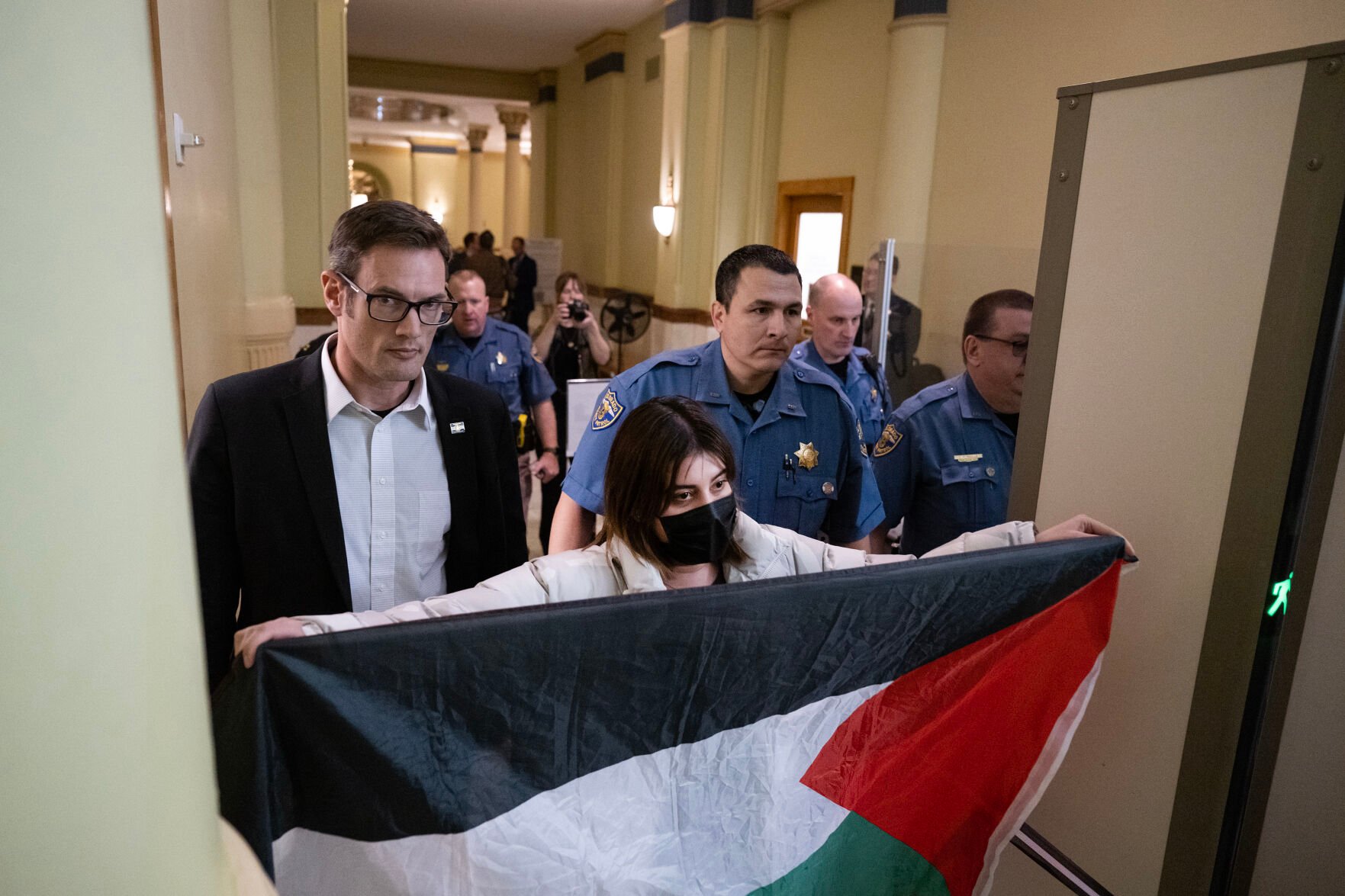


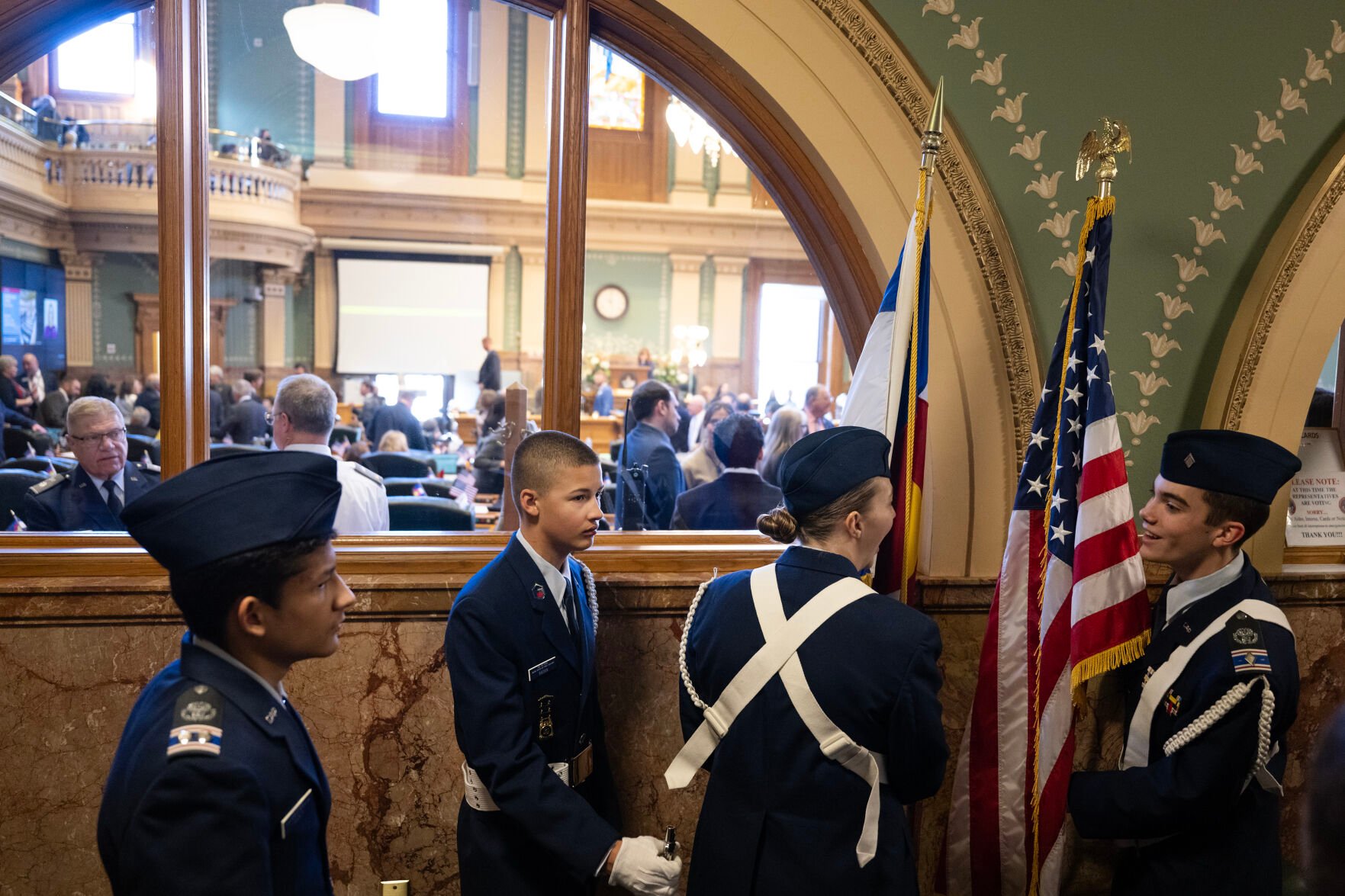
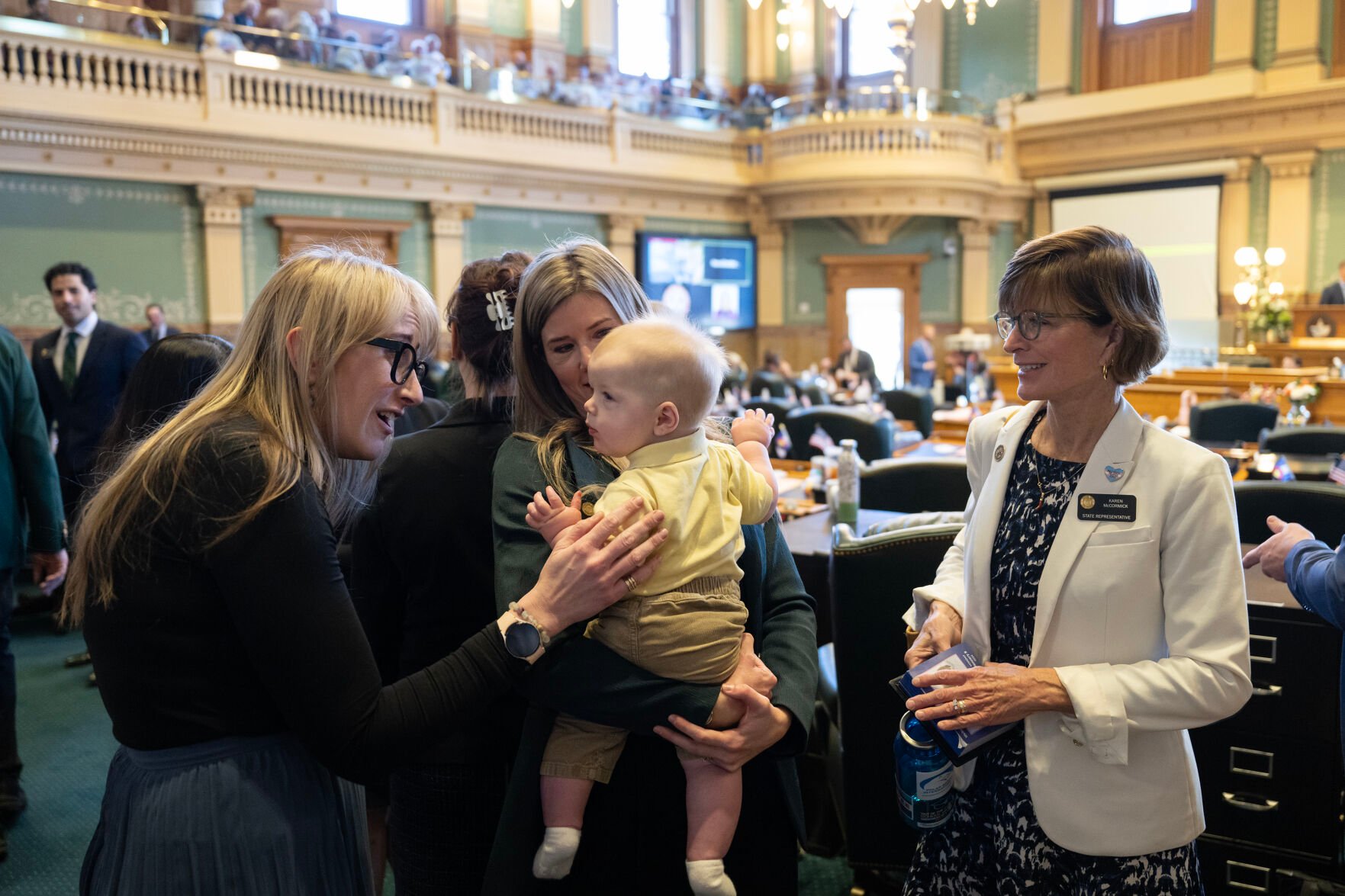
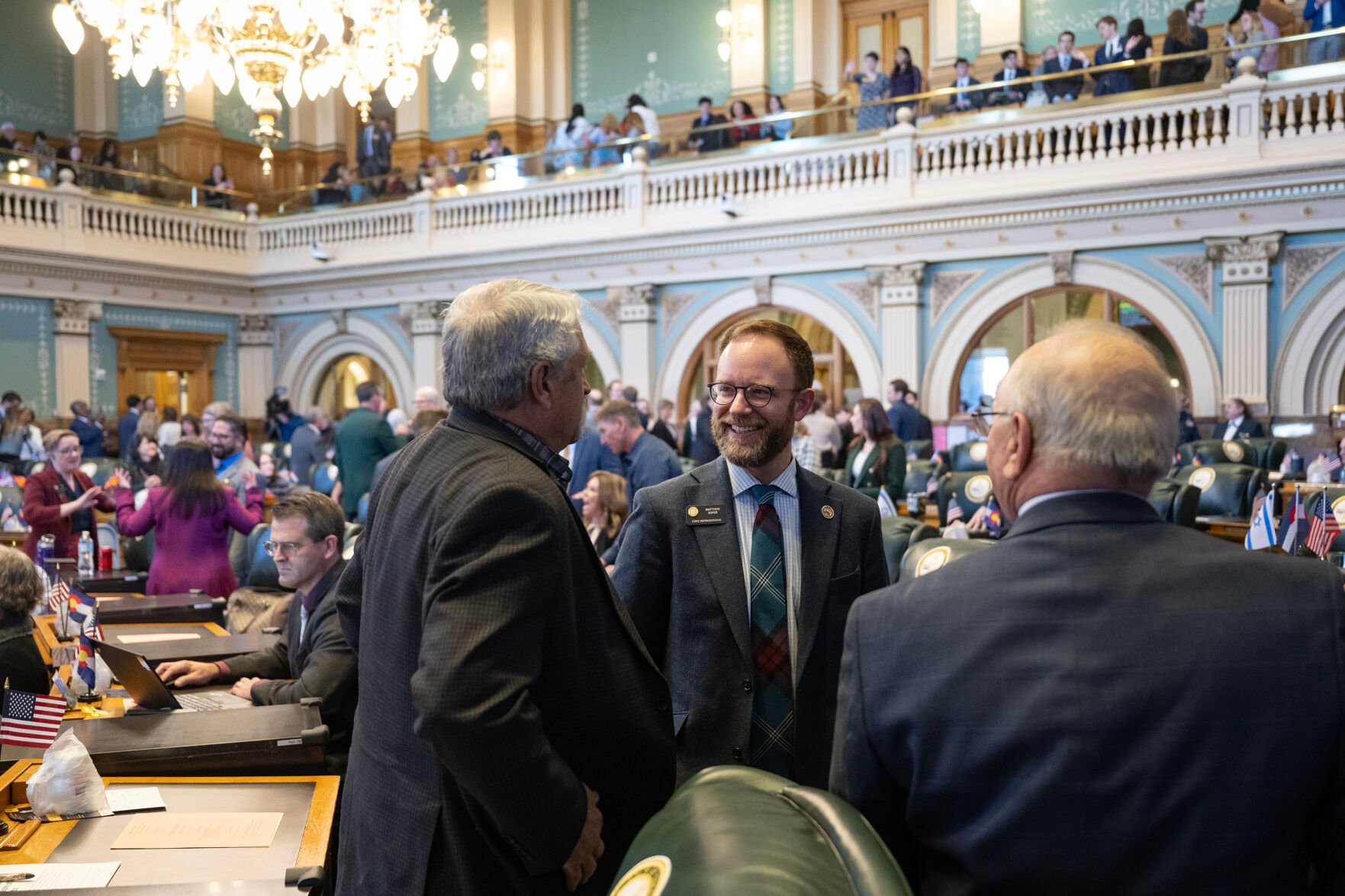
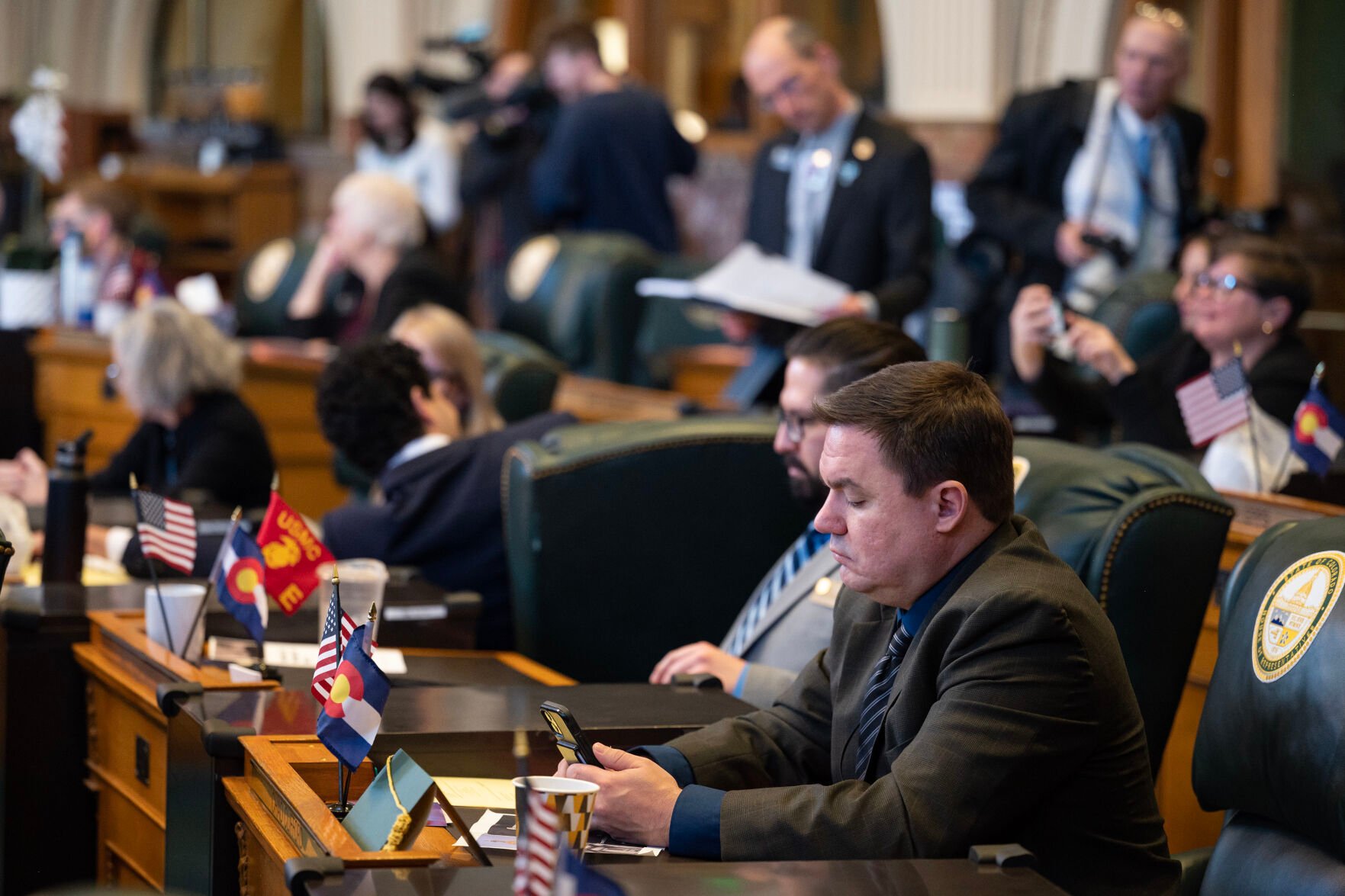
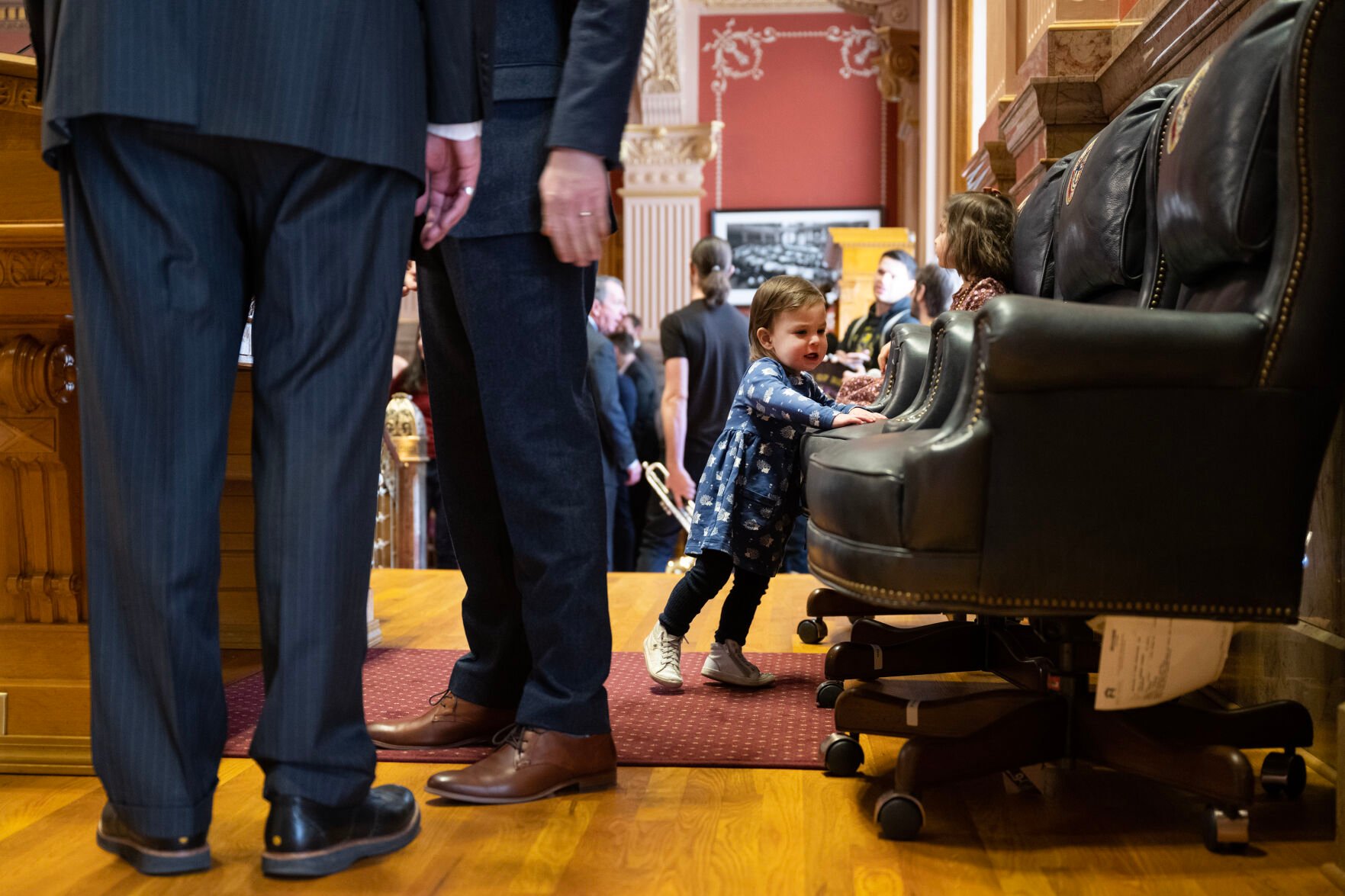
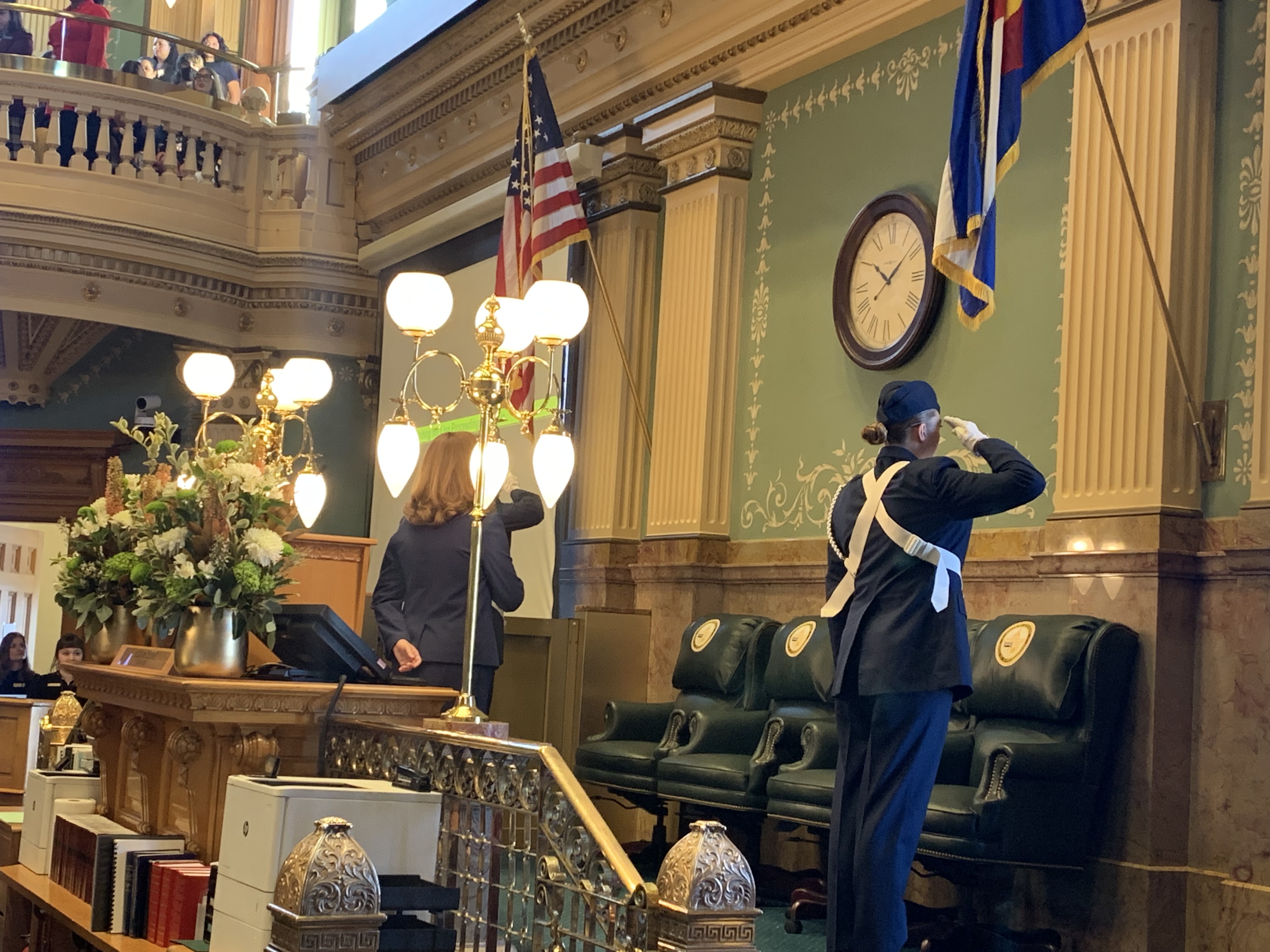
marianne.goodland@coloradopolitics.com
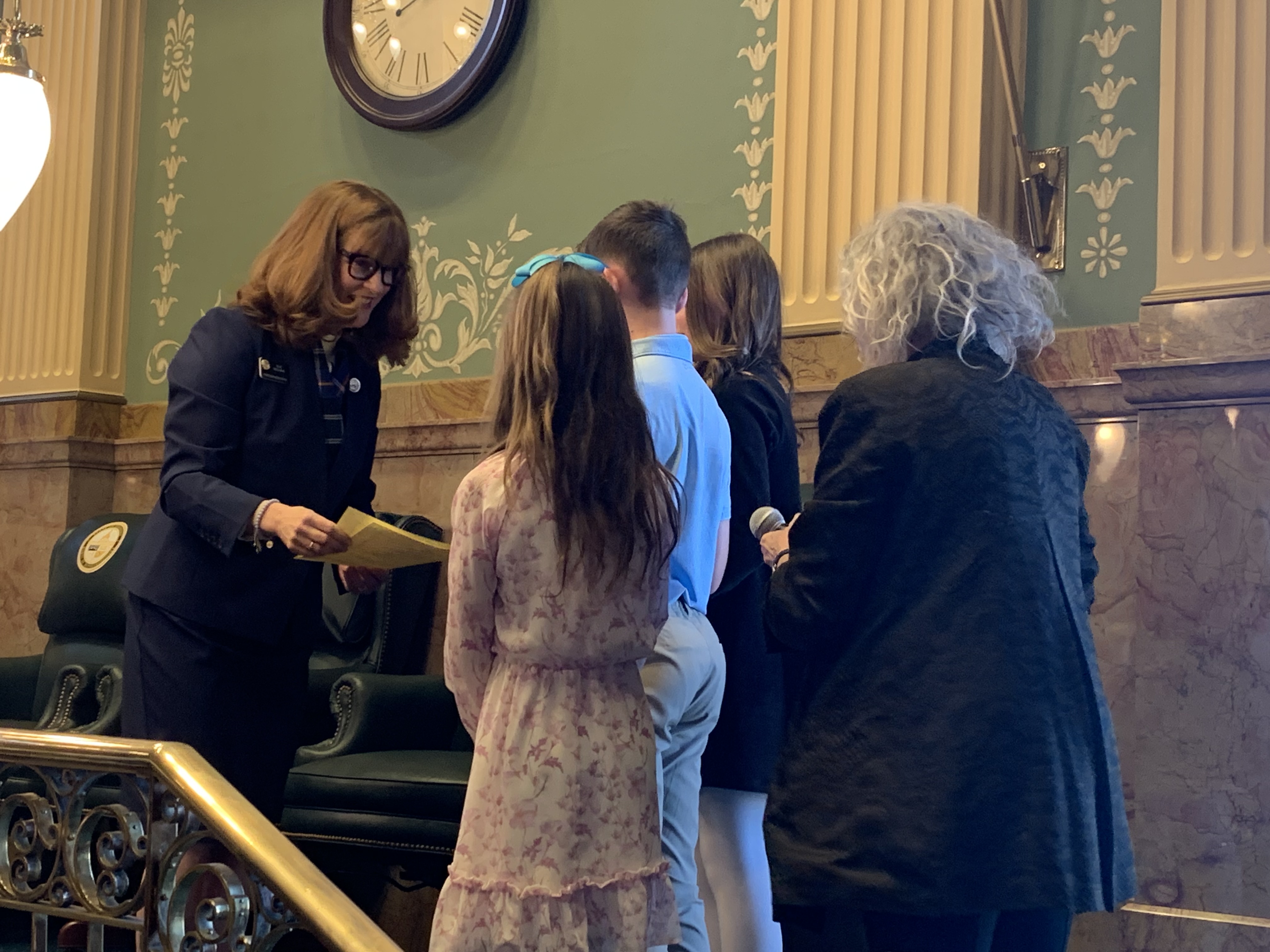
marianne.goodland@coloradopolitics.com




